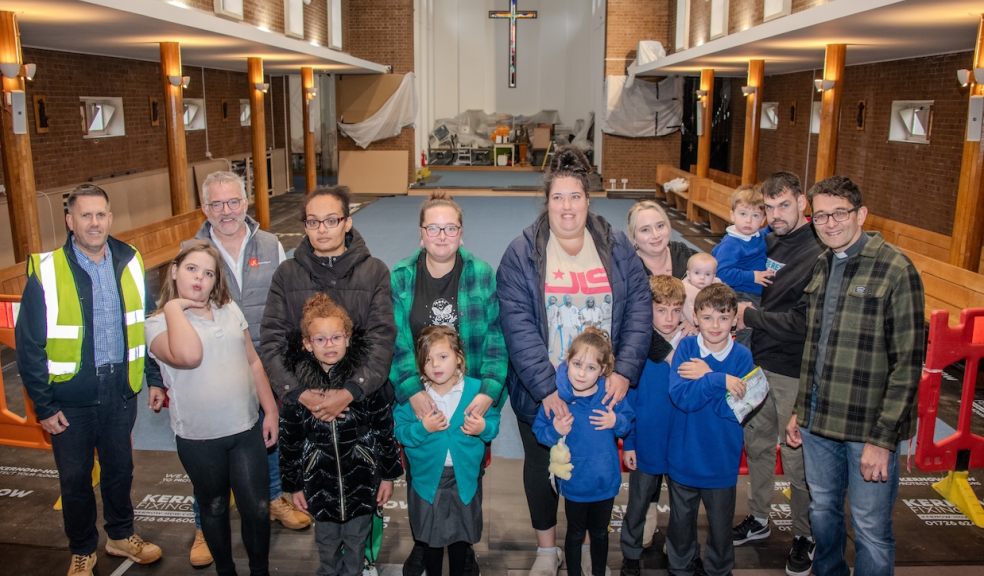
Exeter community church pioneers innovative low-carbon heating system
An Exeter church is embracing technology to tackle one of the biggest challenges for historic and community buildings - how to keep people warm while reducing carbon emissions.
St Boniface Church in Whipton is the first church in the UK to install a pioneering underfloor heating system that uses an innovative ‘groove-cutting’ method developed in the Netherlands.
The church is part of the Church of England’s national Demonstrator Churches programme, which is funding 114 churches to trial and showcase low-carbon solutions on the journey to achieving net zero by 2030.
The St Boniface heating system is being installed by JK Floorheating. The new approach involves milling narrow grooves directly into the church’s existing floor to lay 400 square metres of heating pipes. Unlike traditional underfloor heating, it avoids the need to dig up and rebuild the entire floor, greatly reducing carbon emissions and disruption by reusing the existing floor.
The system heats only the first three metres of air - the space actually occupied by people - rather than allowing heat to vanish into high roof voids, as happens with radiators or overhead heaters.
St Boniface is a vibrant community hub, hosting toddler groups, coffee mornings, and activities for all ages throughout the week. The church has already installed solar panels, but with a failing boiler struggled to find a sustainable way of heating such a large building. This new underfloor heating system will be supplied with warm water by four new air-source heat pumps, which will take electricity from the existing array of solar panels, creating a net-zero heating system to keep the building warm for decades to come.
The £180,000 project has been funded through a combination of grants and local fundraising, with around 50% provided by the Church of England through the Demonstrator Churches programme.
The Reverend Carl Robinson, vicar of St Boniface, said: “Our old boiler broke down two years ago, and we knew long-term that we couldn’t replace it with another fossil fuel system. We’ve explored so many options, but this innovative underfloor system offered the long-term solution we needed.
“It’s a 1950s church that had underfloor heating when it was built, which was quite forward-thinking then - so it feels appropriate that we’re once again using innovation to meet the needs of today. This project will make St Boniface a warm, welcoming space all year round, while also helping us achieve our ambition of becoming completely carbon neutral. I hope it inspires other churches to explore what’s possible.”
Andy Butt, technical director of JK Floorheating, who is based in the Dutch company’s Exeter office, said: “Too many heating systems in tall buildings end up wasting energy heating dead space. Our system is designed to heat people, not the rafters. It’s sustainable, energy-efficient, and perfect for large community buildings like St Boniface.
“This is exactly the kind of forward-thinking, community-based innovation that shows how sustainability can be practical and impactful. Through this project we are proud to be helping not just St Boniface, but potentially other churches to take steps towards a low-carbon future.”
St Boniface Church hopes its example will inspire other faith and community buildings facing similar challenges to explore creative solutions that meet net zero targets without sacrificing comfort or accessibility.
https://jk-gb.com/index.php




















